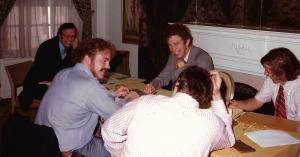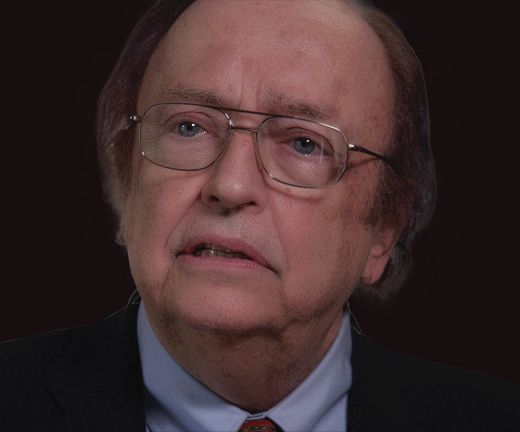Watergate is the 20th Century’s Most Notorious Political Scandal and the Biggest Political Scandal in United States History
— Kirkus Reviews
WASHINGTON D.C., UNITED STATES, May 23, 2024 /EINPresswire.com/ — “Age of Secrets: The Conspiracy that Toppled Richard Nixon and the Hidden Death of Howard Hughes” is the International #1 Bestselling Political Thriller that exposes the real reason for Watergate, which led to President of the United States Richard Nixon being the only U.S. President to resign from office.
The book details how John Meier witnessed a million dollar cash bribe (the equivalent of over $7,000,000 in 2024) between Hughes and Nixon, how this bribe was at the very heart of Watergate, and how knowledge of it was used by Meier and other conspirators to maneuver Nixon into his greatest folly, the Watergate break-in, as well as how the supposedly venerable U.S. Senate Watergate Committee committed its own cover-up and deliberately suppressed evidence disclosing the true nature of Watergate and the role of the U.S. Central Intelligence Agency (CIA) in it.
Nixon, using CIA operatives, had ordered the break-in of the offices of Larry O’Brien, the Chairman of the Democratic National Committee who had worked for both Meier and Hughes, at the Watergate complex on June 17, 1972, and as a result of the Watergate scandal, Nixon resigned as President on August 9, 1974.
Former U.S. Senate Candidate John Meier was the right-hand man to Howard Hughes and one of only a few people to work with Hughes in person, at the time Hughes was the world’s wealthiest individual. Nixon’s brother, Donald, testified to the U.S. Senate Watergate Committee that Meier was “the number-two man with Hughes” and the U.S. Federal Bureau of Investigation (FBI) reported that Meier was “the number one aide to Howard Hughes from the mid-1960’s to the early 1970’s”.
Meier had come to realize how evil and corrupt Nixon was and how bad he was for the United States. So Meier, working with former Vice President of the United States Hubert Humphrey and William Haddad, the political operative who was an aide to the Kennedy family, including working on the presidential campaigns of John F. Kennedy (JFK) and Robert F. Kennedy (RFK), wanted to use knowledge of the bribe to cause Nixon to lose the election.
In late 1971, Donald was collecting intelligence for his brother and was asking Meier about O’Brien. Meier gave Donald disinformation that he was sure the Democrats would win the election since they had a lot of information on President Nixon’s illicit dealings with Howard Hughes that had never been released, including Hughes paying the million dollar bribe to President Nixon that Meier had witnessed, and that Larry O’Brien had the information (O’Brien didn’t actually have any documents but Meier wanted Nixon to think he did). Meier then witnessed Donald calling President Nixon and telling him that Meier gave the Democrats all the Hughes information that could destroy him (Richard Nixon) and that O’Brien has it. This provided President Nixon, who already believed that a previous Hughes loan of $205,000 in 1956 contributed to him losing the 1960 Presidential Election and the 1962 California governorship, with the motivation to break into O’Brien’s office at the Watergate complex, as he wanted to find out if anything was going to break before the election, and which led to the Watergate scandal.
The record shows that before the Watergate break-in, Nixon repeatedly ordered his various aides, John Dean, Nixon’s White House Counsel, H.R. Haldeman, Nixon’s White House Chief of Staff, and Charles Colson, Special Counsel to President Nixon, to check out the link between O’Brien and Hughes. And all of them believed the Watergate break-in took place to find out what O’Brien knew about the Nixon and Hughes connection, as did many other prominent Americans, including John Ehrlichman, White House Counsel and Assistant to Nixon for Domestic Affairs, and many of America’s top investigative journalists, including Jack Anderson (The Washington Post), J. Anthony Lukas (The New York Times), and Ron Rosenbaum (The Village Voice). Colson elliptically referenced that the reason was specifically to find out what information O’Brien had regarding money Hughes had given Nixon.
After Meier was interviewed a number of times by the U.S. Senate Watergate Committee investigators, the full U.S. Senate Watergate Committee voted to grant Meier immunity in order for Meier to be the next person to testify at a public Watergate hearing. But the Watergate Prosecutor’s Office fought to block granting Meier immunity, without providing a reason, and was successful when on November 20, 1973, Judge John J. Sirica granted the block until December 5, 1973, the maximum delay permitted by law. The next day, Judge Sirica granted Meier immunity in order for Meier to testify at a public Watergate hearing on the relationships between the Nixon Administration and Howard Hughes, where Meier was prepared to expose the bribe and to tell a spellbound nation secrets about the Nixon White House, the CIA, and Howard Hughes.
Meier was told Nixon and the CIA had been provided with leaked copies of Meier’s secret testimony with the Watergate investigators and a CIA document that has now been declassified shows Scott Armstrong, one of the Watergate investigators, had discussed information about Meier with the CIA that had come from Meier’s discussions with the Watergate investigators, even though a deal had previously been struck between Meier and the Watergate investigators that anything Meier said to them would be strictly private and confidential until Meier was given immunity and publicly testified. During Meier’s meeting with the investigators, Armstrong surprisingly suggested Meier go to Intertel (a CIA front company) with the information he had.
CIA agent Virgino Gonzales (most likely an alias), a member of the CIA’s ultra-sensitive Domestic Operations Division, filed an affidavit confirming that the CIA was spying on Meier’s meetings with the Watergate investigators, including attempting unsuccessfully to secretly record his testimony, and that the CIA was promised copies of the secret testimony.
Meier was told that U.S. Senator Sam Ervin, Chairman of the U.S. Senate Select Committee on Presidential Campaign Activities that investigated the Watergate scandal, said that he got word from the CIA that it was because of Meier that they had the Watergate break-in. Senator Ervin then signed a subpoena for Meier to appear before the Committee.
When Meier and his lawyer, who was present during Meier’s testimony, asked for copies of the testimony, they were shocked that the Watergate investigators provided them with a heavily manipulated document, and they were told that it was because the Watergate investigators didn’t have a proper stenographer working on it, which was hardly credible.
Meier was then told the Watergate hearings were going back into secret session to prevent Meier from revealing what he knew because his testimony would be too damaging and that a lot of people were worried that too much would be uncovered about Howard Hughes’ dealings beyond President Nixon and that they were now discussing immunity with Nixon. Gerald Ford became President of the United States after Nixon resigned, and Americans were outraged when he pardoned Nixon only four weeks later, on September 8, 1974.
Almost two years after Meier gave his testimony to the Watergate investigators and over a year after Nixon resigned, Henry Ruth, the Watergate lead prosecutor, was still trying to get a copy of Meier’s secret testimony, and recently declassified FBI documents now show that the FBI, many years later, was also still trying to get copies of it.
Terry Lenzner, the chief investigator for the Senate Watergate Committee investigators, wrote an entire section in his report that the conclusion of the investigation was that Hughes was the likely motive for the Watergate break-in, but Lenzner was upset when it wasn’t included in the final report and that he wasn’t provided an explanation.
Sam Dash, who prosecuted the Watergate case for the U.S. Senate, said Meier was an integral part of Watergate and that he’s convinced the Watergate burglars were trying to find out what the Democrats knew about John Meier, the president’s brother, and billionaire Howard Hughes.
Charles Gregory “Bebe” Rebozo was a banker and confidant of Nixon who handled Nixon’s finances. Jack Anderson reported on August 6, 1971, that a Hughes contribution of $100,000 was given to Nixon through Rebozo (as this had already been made public and was ancient news by the time of the Watergate break-in, it would not have been a motive for the burglary).
Rebozo was furious that Meier had witnessed the million dollar bribe to Nixon, which also had been passed through Rebozo in a hotel, with the CIA downstairs in the lobby and restaurant overseeing the transfer of the briefcase of money that would later be given to Rebozo, and Rebozo later wrote a letter to Ehrlichman (who presumably didn’t know about the bribe) about how Meier was going to be trouble and “Now you have the problem, and you can solve it. Let me remind you however, that assassination is illegal”.
Ehrlichman confirmed that Nixon ordered the CIA and Secret Service to watch Meier and that Nixon believed that he had previously lost the presidency in 1960 and the California governorship in 1962 because of the political innuendo of the previous Hughes loan.
In Rebezo’s testimony to the Watergate Committee, he admitted that two IRS special agents came to see him, saying they were checking tax returns for Hughes, and he testified that one of the IRS agents said, “What we’re here for is to try to locate $1 million. We’ve searched all over. There’s a million that we feel, perhaps, taxes have not been paid on”.
Because of Rebozo’s use of the phrase “perhaps taxes have not been paid,” one can conclude that the IRS was not searching for a campaign contribution, which is untaxable, but hidden income, which the million dollars delivered to Rebozo for Nixon assuredly was.
John Dean told Nixon shortly after the break-in that the burglars were demanding hush money. Nixon asked how much their silence would cost; Dean estimated $1 million. The Nixon White House Tapes confirm Nixon responded that he could easily get him a million dollars in cash. The evidence points to Nixon referring to the Hughes money.
During the fallout from Watergate, Nixon offered $300,000 in cash to Ehrlichman and Haldeman, which prosecutor Richard Ben-Veniste, chief of the Watergate Task Force of the Watergate Special Prosecutor’s Office, charged that the offer was made as a way of the three men “protecting” each other. Haldeman stated that he later asked Nixon where the money would come from and that Nixon told him Rebozo had it. “But I reminded him that Bebe had only $100,000 of the Hughes money. Where would the rest have come from? Nixon told me this interesting news. There was much more money in Bebe’s ‘tin box’ than the Hughes $100,000”. In 1977, Nixon admitted to journalist David Frost that he was thinking of the $300,000 coming from money from Hughes.
John Meier has been referred to in the media as the man who brought down President Nixon. Meier was Vice Chairman of the Humphrey-Muskie National Finance Committee, during Vice President Humphrey’s Presidential Campaign, he served on President Nixon’s Task Force on Resources and Environment, and was a Special Consultant to Nixon’s Environmental Quality Advisory Committee. Meier has been an advisor to several U.S. Senators, including Hubert Humphrey, Mike Gravel, and Robert F. Kennedy.
Nixon talks about Meier on several reels of the Nixon White House Tapes and Meier is mentioned in hundreds of government and historical records forever preserved at the U.S. National Archives because of their importance to the history of the United States.
The downfall of President Nixon forever impacted the world, conceivably changed the course of which U.S. presidents were subsequently elected, and was the 20th century’s most notorious political scandal and the biggest political scandal in United States history. It also created the internationally used suffix -gate, which follows a relevant word to refer to a scandal (such as Irangate and Bridgegate).
Watergate sent a shockwave through the United States and was responsible for many in the U.S. Congress to demand investigations into the past activities of America’s intelligence organizations, including the CIA, FBI, and the National Security Agency (NSA). This consequently led to the formation of various Committees including the Church Committee (formally the U.S. Senate Select Committee to Study Governmental Operations with Respect to Intelligence Activities), and committees that continue to exist today such as the Pike Committee (which is the common name for the U.S. House Permanent Select Committee on Intelligence), which hearings from those committees exposed the harassment of American citizens, including secret wiretappings of Supreme Court Justices, members of Government, the press and prominent Americans such as leader of the American civil rights movement Martin Luther King Jr., all under the cover of claiming collecting intelligence about threats to national security.
The 50th anniversary of Nixon’s resignation is August 9th, and with the current political climate in the United States, Watergate matters as much today as it did at the time. Americans trusted the president until Nixon, who had shown that a president could be corrupt, break the law, take bribes, cheat, subvert the Constitution, and weaponize the government against his personal and political enemies. Nixon caused Americans to never fully trust the president again.
“Age of Secrets” details Meier’s efforts to expose the truth of what he knew about Nixon, Hughes, and the illegal activities of the CIA, which he was prevented from revealing in the Watergate hearings, and how Meier suffered over 15 years of political retribution from the CIA, which tried to destroy him to prevent him from exposing what he knew.
U.S. Presidential Candidate and U.S. Senator Mike Gravel (the Senator who read the Pentagon Papers into the official record) had said, “John Meier has been persecuted by agents of the American government and threatened by criminal elements in the U.S. and is The Man Who Knew Too Much About Too Many Bad People”.
The U.S. Government recently declassified 700 documents on Meier’s dealings with domestic and foreign intelligence agencies, Watergate, Hughes, etc. They include confirmation of the CIA working behind the scenes to frame Meier for a number of offences as part of their “dirty tricks” campaign against him. The FBI refused to declassify more documents, but Meier was successful in appealing the decision with the U.S. Department of Justice (DOJ), which instructed the FBI to release them and which are scheduled for release in 2025. The CIA had also refused to declassify further documents and denied Meier’s Right of Appeal.
In the Afterword of the book, Meier sums up his politically motivated battle by saying “My story is one of a man devastated by a corrupt system. Our governments are increasingly disrespectful of basic human rights such that we can no longer legitimately call our nations democracies. I hope that this story will contribute to changing this course”.
THE MAJOR MOTION PICTURE IN DEVELOPMENT ‘MEIERGATE’ IS ABOUT THE LIFE STORY OF JOHN MEIER
MORE INFORMATION ON AGE OF SECRETS IS AT AGEOFSECRETS.COM
A DETAILED BACKGROUND ON JOHN MEIER IS AT JOHNMEIER.COM
Sources:
https://ageofsecrets.com/
https://johnmeier.com
https://archive.org/details/du-bois-larry-and-laurence-gonzales-hughes-nixon-and-the-cia-the-watergate-consp
https://www.delta-optimist.com/local-news/delta-man-attempting-to-expose-truth-behind-rfk-assassination-5005423
https://youtu.be/2NRnBfkUVUQ
https://www.msnbc.com/msnbc/nixon-40th-anniversary-order-the-watergate-break-msna387256
Jim Meier
Meier Publishing
+1 866-634-3724
[email protected]
Visit us on social media:
Facebook
Twitter
YouTube
AGE OF SECRETS | Official Book Trailer | Meier Publishing
![]()
Originally published at https://www.einpresswire.com/article/703925430/age-of-secrets-biography-on-john-meier-exposes-real-reason-for-watergate-nixon-resignation-50-years-ago-on-aug-9th
The post ‘Age of Secrets’ Biography on John Meier Exposes Real Reason for Watergate – Nixon Resignation 50 years ago on Aug. 9th first appeared on The Offspring Session.
Art and Entertainment - The Offspring Session originally published at Art and Entertainment - The Offspring Session





